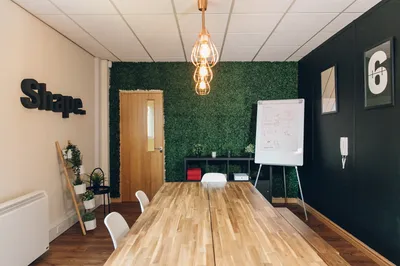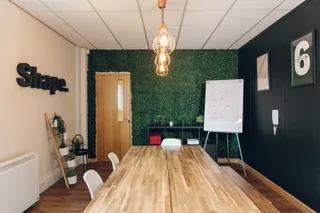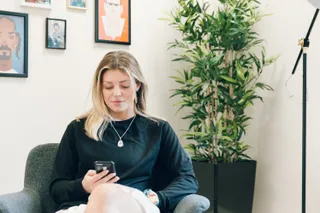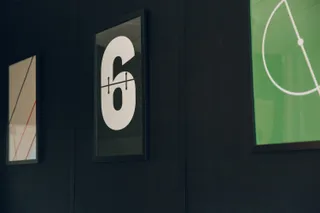Library Hours and Early Finishes at Work


I’ve been reading up on productivity, and how we can get the most out of our team members whilst keeping their morale high. Various techniques are used, and not every system would work for MadeByShape. Learning how other businesses handle their staff has really opened my eyes to how agencies are so different from each other. We have an ethos, a direction, a complete understanding of who we are and where we want to be - and that’s been the case since day one. But as a business grows and gets busier, sometimes this can get blurry, or just needs to be put back on track and refreshed with the whole group - which is exactly what we’ve done recently.

Over the years, we’ve worked with a 8:30am start and 4:30pm finish. This was mainly based on traffic, so all team members can get in and out of work as quick as possible. This helps with positivity, because if you are stressed with traffic and the length of time on your journey into work - it will affect productivity. If you’re sat in traffic, or have to leave your home much earlier because you are worried about traffic - then as soon as you get into work, you’re starting on a negative. This means you don’t start work immediately, you need time to adjust, settle down, and concentrate on your jobs. I’m not sure what the exact science is here, but my experience tells me that this is about 1 hour before you are fully engaged in your role. So if you multiply that each day, every month, that’s a lot of hours wasted.
When we employ, we give clear directions and positions. This means that every team member understands their role and what is expected. As our project manager, it is my role to make sure everybody has projects to work on and deadlines to meet. I handle the majority of client communication which leaves our staff to concentrate on the delivery. This works well for us and minimises time spent away from the project.
My approach is to give each individual project by project deadlines and targets. I also throw in some smaller tasks that can be completed alongside these bigger tasks. My thinking here is that it keeps your mind active, because working on the same project for a long time can become boring and reduce concentration. It also allows each team member to have tasks to complete when waiting for client review or if they have any questions and I’m not in the studio to answer. With that said, each person knows exactly what is needed and when for. Now, it’s up to that individual to deliver. I don’t stand over. I don’t watch. I don’t check up on them every 5 minutes. We are all adults, we trust and believe in our team to manage their own time and project management. So even though I have given them a list of jobs, it’s up to them to prioritise and make sure everything meets the deadline. I believe this works because that individual feels part of the team, they have responsibility, and the flexibility to jump between projects to keep their mind fresh. It also gives them the opportunity to complete projects ahead of schedule, improve their personal development and get a bonus, or leave work early - or a pay rise etc. Achieving goals, and over-achieving goals is only going to have a positive impact within your workplace.
So, now you know the background to our working hours. We wanted to make some small tweaks to improve productivity and concentration. Our culture at the studio is loose, informal, friendly, we have banter, we are a family, it’s amazing in our opinion. We are very proud to have created the team we have, and evolved as a studio. I walk in to some studios, it’s silent, no atmosphere - it feels like a regular office. That’s not us. It’s not where we want to be 5 days a week. BUT, with that said - it’s a business and we have to achieve targets as a management team.
I read an article 12 months ago (sorry I’m still trying to find that specific link) in which it stated that it takes 10 minutes to re-engage with your work if disrupted. So, putting this into context… if Jason has his headphones on, and Mike asks Jason “What time you going out for lunch today?”. Jason takes his headphones off, answers the question, puts his headphones back on and starts work. This could take as little as 20 seconds but the effect on Jason is bigger. Studies shows that it takes 10 minutes to fully engage in that project. Times that by how many times people talk and communicate in the studio, it’s A LOT. So we noticed this as an area we need to improve in.
I went on a digital growth course. It was specific to the digital industry, so it was relevant to us. The businesses involved including a range of software development, IT, creative, web etc but all within the digital field. Within going into too much detail - meeting other Creative Directors and Founders allows you to chat about problems within the workplace and how they resolved them. This experience along with a lot of reading gave me several options to test within our digital agency in Manchester.
Option 1 - Work from home
In our contracts, it states that we allow team members to work from home once a month if they wish. Some agencies allow team members to work from home whenever they want, and some people allow it every day. This definitely wouldn’t work for us. We’re a small team, we need to communicate. We don’t have a receptionist - who would answer the phone? What if a client came to visit our studio and all team members where working from home? We wouldn’t be perceived to be a professional studio on first impression.
Option 2 - Shut up
Stopping people from talking is not an option. We’re a team who enjoy collaborating on projects and talking about the weekend. Removing this social aspect all together is not for us.
Option 3 - Reducing the amount of days
Instead of working 5 days a week, reducing to working 4 days a week was an option for us. This meant that everybody would have the same deadlines but less amount of days to complete within. That means the individual would have to concentrate more, and work harder to get their jobs done. But the plus side means they have a 3 day weekend.
Option 4 - Confiscate phone and social media
We allow everyone to have their phones on their desk, check social media if they wish. It’s loose, we trust our employees to not take the piss. But another business owner doesn’t allow this in his workplace. I understand why he does that, and it would improve concentration. But for us, having your phone is not about texting your mates in group chats all day. It’s having the comfort of contacting somebody if you need too, your phone is available in an emergency if somebody tries to contact you. But checking social media is fine too, it brings inspiration within your day. I do see the benefits of this option but taking them away all together isn’t our approach.
So based on all the above, we didn’t have a solution - so after discussion, we created our own…

We didn’t want to cut off communication, full stop. But we did want to reduce the amount of disruption. So we have implemented library hours. Between 1pm and 3pm - Monday > Thursday our studio has the following rules:
Monday > Thursday, 1pm to 3pm library rules are in place. This means no loud music in the studio, no disruptive chatting or interruptions. Also, if headphones are on, this means “deep in thought” or “do not disturb”. If you need to speak to a team member, Slack must be used between these times.
There must be no social media interaction, texts, whatsapp etc during library hours unless it’s an emergency call.
Meeting Room = Big Discussion. To avoid disruptions, take large discussions to the meeting room (Where possible) instead of around desks.
We’ve decided to trial this up until Christmas. So far, so good. We are seeing improvements in concentration.
To balance the new rule about library hours, we wanted to keep morale high so…
If your deadlines have been met and produced to a good quality / standard, you are able to leave at 2pm on a Friday if you wish to. Ready to start that extra long weekend. Please check with Andy or Jason before leaving to make sure nothing else is needed.
Have you introduced anything similar in your workplace? Or experimented with rules that did or didn’t work? We’d love to hear from you.

Co-Founder of MadeByShape. Most of my blogs are about business related aspects, not just web design.